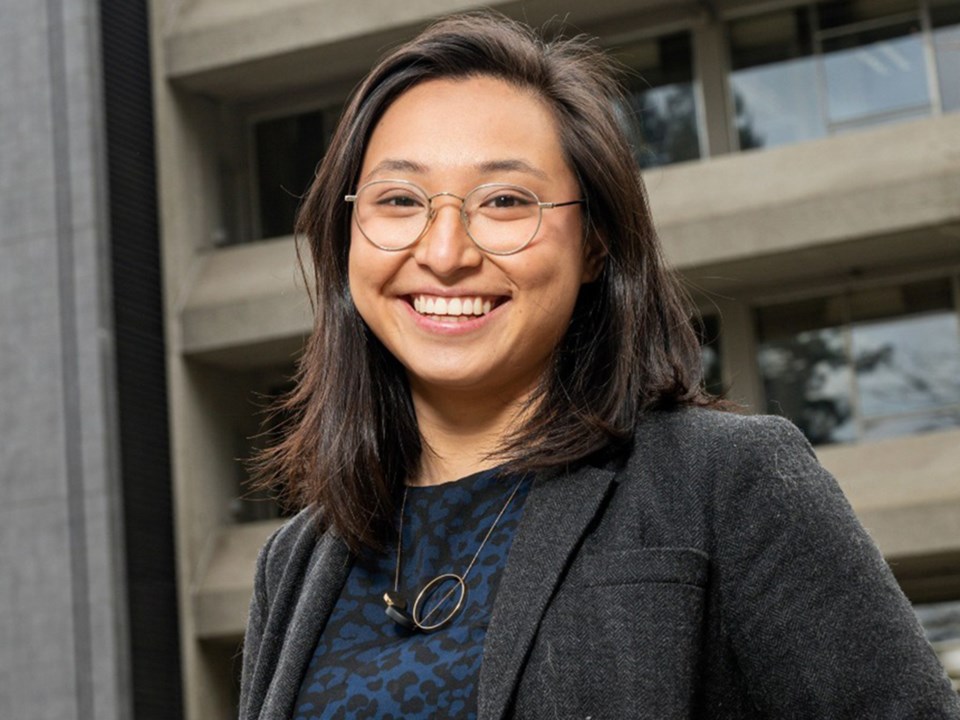Burnaby NOW will be publishing candidate Q&As for each candidate leading up to the City of Burnaby byelection scheduled for June 26, 2021. The answers provided have not been altered or changed.
Alison Gu is ready to bring a fresh, new perspective to council.
QUESTION: When did you decide to run for the City of Burnaby byelection?
ANSWER: I decided to run in December of 2020.
QUESTION: Why did you decide to be a candidate?
ANSWER: I’m running for City Council to fight for climate justice, truly affordable housing, and for anti-racism and equity to be embedded into every policy and plan.
Younger people need to see themselves represented in every level of government, but they also need to see their top concerns and values represented.
QUESTION: What do you think is needed on city council the most? What do you think it’s missing/lacking?
ANSWER: Fresh perspectives, new voices, and different lived experiences. Burnaby is an extremely diverse city with 40% of voters under the age of 40 and a whopping 64% of people who identify as a visible minority. We need to do everything possible to ensure that Council and the decisions they make reflect the needs of Burnaby residents.
QUESTION: Do you think there needs to be more diversity when it comes to Burnaby’s municipal government? If so, why?
ANSWER: Individual diversity alone isn’t the sole solution to the problems that we face today, which are deep-rooted and largely systemic.
However, one of the reasons we are where we are today, particularly with respect to housing, is because the decisions that have been made by those in power thus far have lacked an understanding of the experiences of more marginalized communities.
There are extremely different barriers that single moms, young people, racialized seniors, Indigenous peoples, and newcomers face when it comes to things like housing. People who represent these communities will have different lived experiences that will reflect how they go about solving these issues, and they will also be better connected to hearing the perspectives of those whose voices are also often missing in consultation.
QUESTION: What issues do you think need to be tackled the most in Burnaby?
ANSWER: Housing affordability, transportation issues, and racial justice.
We have to build on the progress we’ve made in protecting renters, increase the amount of purpose-built rental housing, mix a diversity of buildings and housing into neighbourhoods, utilize city-owned land and resources to build affordable options, and leverage zoning to build complete communities at affordable prices.
Transportation is another key issue, especially in a city as large as Burnaby. Cities have the responsibility to provide the active transportation infrastructure to ensure that people who walk or roll can get to friends, family, and businesses across our city safely and conveniently. Implementing low-carbon infrastructure is also crucial for us to reach our climate goals, since 40% of our emissions come from transportation.
Racism has always existed -- systemic and covert or individualized and loud. But because of the events of this past year (horrifying increases in anti-Asian racism, the murder of George Floyd, the discovery of the remains of 215 children at a former residential school, and the most recent murder of a Muslim family) people are starting to say, enough is enough. We don’t want our community to turn into the next news story. With Burnaby being one of the most diverse communities in Canada -- 64% of residents identify as a visible-minority -- we are well-positioned to be a leader on issues related to anti-racism and equity. If elected, I will advocate for the full adoption and implementation of the five calls to action for municipal governments published by the Truth and Reconciliation Commission, and full implementation of the United Nations Declaration on the Rights of Indigenous Peoples. I worked to ensure that one key tenet of the BCA platform is to apply an anti-racist and equity lens to every existing and new City policy. This work may take a significant amount of time, but it is a crucial step towards tackling the racism that has always existed but which has manifested so clearly in the last year with increased anti-Asian, Islamophobic, anti-Black, and anti-Indigenous violence.
QUESTION: Why should voters vote for you?
ANSWER: I believe that compassion, justice, and equity are values that must be the foundation of every piece of policy and legislation that is passed. We need politicians and leaders who will be courageous in their choices and proactive in their problem-solving. It’s time that the issues of both today and tomorrow are tackled with urgency -- for us, for our children, and for our grandchildren.
QUESTION: What would you say to those who may not want to vote or don’t really see a point?
ANSWER: Municipal politics matter. Cities have important roles to play when it comes to issues like climate change, housing, reconciliation, anti-racism, child care, equity, parks and greenspace, roads and infrastructure, libraries and more. And that means who you elect makes a difference. Elect people who have the interests of everyday people at heart.





